#main-street
Explore tagged Tumblr posts
Text
Fridge Magnet Memories of Bridge Street in Carleton Place ----
Memory Notes of Bridge Street in Carleton Place
youtube
View On WordPress
0 notes
Text
The one weird monopoly trick that gave us Walmart and Amazon and killed Main Street
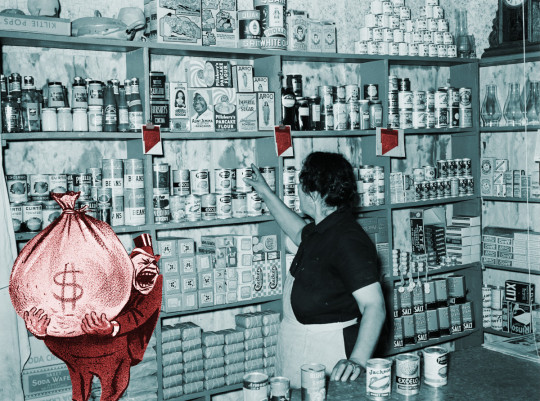
I'm coming to BURNING MAN! On TUESDAY (Aug 27) at 1PM, I'm giving a talk called "DISENSHITTIFY OR DIE!" at PALENQUE NORTE (7&E). On WEDNESDAY (Aug 28) at NOON, I'm doing a "Talking Caterpillar" Q&A at LIMINAL LABS (830&C).

Walmart didn't just happen. The rise of Walmart – and Amazon, its online successor – was the result of a specific policy choice, the decision by the Reagan administration not to enforce a key antitrust law. Walmart may have been founded by Sam Walton, but its success (and the demise of the American Main Street) are down to Reaganomics.
The law that Reagan neutered? The Robinson-Patman Act, a very boring-sounding law that makes it illegal for powerful companies (like Walmart) to demand preferential pricing from their suppliers (farmers, packaged goods makers, meat producers, etc). The idea here is straightforward. A company like Walmart is a powerful buyer (a "monopsonist" – compare with "monopolist," a powerful seller). That means that they can demand deep discounts from suppliers. Smaller stores – the mom and pop store on your Main Street – don't have the clout to demand those discounts. Worse, because those buyers are weak, the sellers – packaged goods companies, agribusiness cartels, Big Meat – can actually charge them more to make up for the losses they're taking in selling below cost to Walmart.
Reagan ordered his antitrust cops to stop enforcing Robinson-Patman, which was a huge giveaway to big business. Of course, that's not how Reagan framed it: He called Robinson-Patman a declaration of "war on low prices," because it prevented big companies from using their buying power to squeeze huge discounts. Reagan's court sorcerers/economists asserted that if Walmart could get goods at lower prices, they would sell goods at lower prices.
Which was true…up to a point. Because preferential discounting (offering better discounts to bigger customers) creates a structural advantage over smaller businesses, it meant that big box stores would eventually eliminate virtually all of their smaller competitors. That's exactly what happened: downtowns withered, suburban big boxes grew. Spending that would have formerly stayed in the community was whisked away to corporate headquarters. These corporate HQs were inevitably located in "onshore-offshore" tax haven states, meaning they were barely taxed at the state level. That left plenty of money in these big companies' coffers to spend on funny accountants who'd help them avoid federal taxes, too. That's another structural advantage the big box stores had over the mom-and-pops: not only did they get their inventory at below-cost discounts, they didn't have to pay tax on the profits, either.
MBA programs actually teach this as a strategy to pursue: they usually refer to Amazon's "flywheel" where lower prices bring in more customers which allows them to demand even lower prices:
https://www.youtube.com/watch?v=BaSwWYemLek
You might have heard about rural and inner-city "food deserts," where all the independent grocery stores have shuttered, leaving behind nothing but dollar stores? These are the direct product of the decision not to enforce Robinson-Patman. Dollar stores target working class neighborhoods with functional, beloved local grocers. They open multiple dollar stores nearby (nearly all the dollar stores you see are owned by one of two conglomerates, no matter what the sign over the door says). They price goods below cost and pay for high levels of staffing, draining business off the community grocery store until it collapses. Then, all the dollar stores except one close and the remaining store fires most of its staff (working at a dollar store is incredibly dangerous, thanks to low staffing levels that make them easy targets for armed robbers). Then, they jack up prices, selling goods in "cheater" sizes that are smaller than the normal retail packaging, and which are only made available to large dollar store conglomerates:
https://pluralistic.net/2023/03/27/walmarts-jackals/#cheater-sizes
Writing in The American Prospect, Max M Miller and Bryce Tuttle1 – a current and a former staffer for FTC Commissioner Alvaro Bedoya – write about the long shadow cast by Reagan's decision to put Robinson-Patman in mothballs:
https://prospect.org/economy/2024-08-13-stopping-excessive-market-power-monopoly/
They tell the story of Robinson-Patman's origins in 1936, when A&P was using preferential discounts to destroy the independent grocery sector and endanger the American food system. A&P didn't just demand preferential discounts from its suppliers; it also charged them a fortune to be displayed on its shelves, an early version of Amazon's $38b/year payola system:
https://pluralistic.net/2022/11/28/enshittification/#relentless-payola
They point out that Robinson-Patman didn't really need to be enacted; America already had an antitrust law that banned this conduct: section 2 of the the Clayton Act, which was passed in 1914. But for decades, the US courts refused to interpret the Clayton Act according to its plain meaning, with judges tying themselves in knots to insist that the law couldn't possibly mean what it said. Robinson-Patman was one of a series of antitrust laws that Congress passed in a bid to explain in words so small even federal judges could understand them that the purpose of American antitrust law was to keep corporations weak:
https://pluralistic.net/2023/04/14/aiming-at-dollars/#not-men
Both the Clayton Act and Robinson-Patman reject the argument that it's OK to let monopolies form and come to dominate critical sectors of the American economy based on the theoretical possibility that this will lead to lower prices. They reject this idea first as a legal matter. We don't let giant corporations victimize small businesses and their suppliers just because that might help someone else.
Beyond this, there's the realpolitik of monopoly. Yes, companies could pass lower costs on to customers, but will they? Look at Amazon: the company takes $0.45-$0.51 out of every dollar that its sellers earn, and requires them to offer their lowest price on Amazon. No one has a 45-51% margin, so every seller jacks up their prices on Amazon, but you don't notice it, because Amazon forces them to jack up prices everywhere else:
https://pluralistic.net/2024/03/01/managerial-discretion/#junk-fees
The Robinson-Patman Act did important work, and its absence led to many of the horribles we're living through today. This week on his Peoples & Things podcast, Lee Vinsel talked with Benjamin Waterhouse about his new book, One Day I’ll Work for Myself: The Dream and Delusion That Conquered America:
https://athenaeum.vt.domains/peoplesandthings/2024/08/12/78-benjamin-c-waterhouse-on-one-day-ill-work-for-myself-the-dream-and-delusion-that-conquered-america/
Towards the end of the discussion, Vinsel and Waterhouse turn to Robinson-Patman, its author, Wright Patman, and the politics of small business in America. They point out – correctly – that Wright Patman was something of a creep, a "Dixiecrat" (southern Democrat) who was either an ideological segregationist or someone who didn't mind supporting segregation irrespective of his beliefs.
That's a valid critique of Wright Patman, but it's got little bearing on the substance and history of the law that bears his name, the Robinson-Patman Act. Vinsel and Waterhouse get into that as well, and while they made some good points that I wholeheartedly agreed with, I fiercely disagree with the conclusion they drew from these points.
Vinsel and Waterhouse point out (again, correctly) that small businesses have a long history of supporting reactionary causes and attacking workers' rights – associations of small businesses, small women-owned business, and small minority-owned businesses were all in on opposition to minimum wages and other key labor causes.
But while this is all true, that doesn't make Robinson-Patman a reactionary law, or bad for workers. The point of protecting small businesses from the predatory practices of large firms is to maintain an American economy where business can't trump workers or government. Large companies are literally ungovernable: they have gigantic war-chests they can spend lobbying governments and corrupting the political process, and concentrated sectors find it comparatively easy to come together to decide on a single lobbying position and then make it reality.
As Vinsel and Waterhouse discuss, US big business has traditionally hated small business. They recount a notorious and telling anaecdote about the editor of the Chamber of Commerce magazine asking his boss if he could include coverage of small businesses, given the many small business owners who belonged to the Chamber, only to be told, "Over my dead body." Why did – why does – big business hate small business so much? Because small businesses wreck the game. If they are included in hearings, notices of inquiry, or just given a vote on what the Chamber of Commerce will lobby for with their membership dollars, they will ask for things that break with the big business lobbying consensus.
That's why we should like small business. Not because small business owners are incapable of being petty tyrants, but because whatever else, they will be petty. They won't be able to hire million-dollar-a-month union-busting law-firms, they won't be able to bribe Congress to pass favorable laws, they can't capture their regulators with juicy offers of sweet jobs after their government service ends.
Vinsel and Waterhouse point out that many large firms emerged during the era in which Robinson-Patman was in force, but that misunderstands the purpose of Robinson-Patman: it wasn't designed to prevent any large businesses from emerging. There are some capital-intensive sectors (say, chip fabrication) where the minimum size for doing anything is pretty damned big.
As Miller and Tuttle write:
The goal of RPA was not to create a permanent Jeffersonian agrarian republic of exclusively small businesses. It was to preserve a diverse economy of big and small businesses. Congress recognized that the needs of communities and people—whether in their role as consumers, business owners, or workers—are varied and diverse. A handful of large chains would never be able to meet all those needs in every community, especially if they are granted pricing power.
The fight against monopoly is only secondarily a fight between small businesses and giant ones. It's foundationally a fight about whether corporations should have so much power that they are too big to fail, too big to jail, and too big to care.

Community voting for SXSW is live! If you wanna hear RIDA QADRI and me talk about how GIG WORKERS can DISENSHITTIFY their jobs with INTEROPERABILITY, VOTE FOR THIS ONE!

If you'd like an essay-formatted version of this post to read or share, here's a link to it on pluralistic.net, my surveillance-free, ad-free, tracker-free blog:
https://pluralistic.net/2024/08/14/the-price-is-wright/#enforcement-priorities
#pluralistic#Robinson-Patman Act#ftc#alvaro bedoya#monopoly#monopsony#main street#too big to jail#too big to care#impunity#regulatory capture#prices#the american prospect#Max M Miller#Bryce Tuttle#a and p#wright patman
2K notes
·
View notes
Text
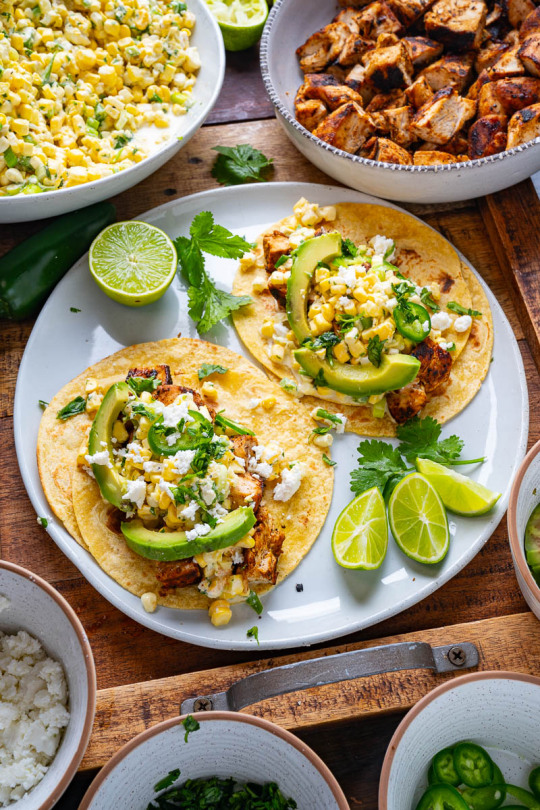
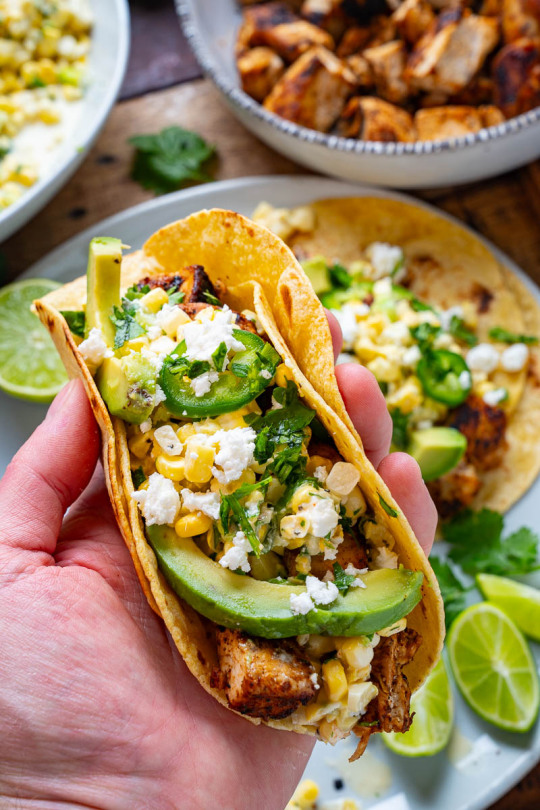
Mexican street corn chicken tacos
#chicken#tacos#chicken tacos#dinner#food#meal#mexican food#avocado#corn#jalapeno#mexican street corn#elote#main dishes#tasty#foodporn#delicious#cooking#food photography#foodgasm#recipe
2K notes
·
View notes
Text






FiddleStantober2024- Day 11, Suits!
#please be a normal party#with FORD?? NO WAY!!#AWWW#CRUSIN ON DOWN MAIN STREET#FiddleStantober2024#stan has low self esteem#and def thought fidds was joking#gravity falls#gay men with yellow eyes#fiddlestan#fiddleford mcgucket#fiddleford hadron mcgucket#stanley pines#young fiddleford#young stan pines#fiddstan#stanley x fiddleford#fiddlestan inktober
704 notes
·
View notes
Text
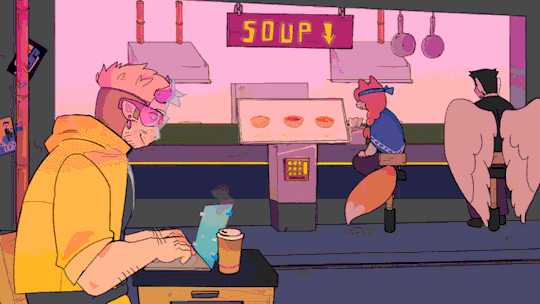
🎵chill lofi-cyberpunk beats to eat soup to🎵
#fence posts#impulsesv#skizzleman#geminitay#hermitcraft#hermitblr#animation#so so happy with how this turned out :3 even tho it’s not the best#(don’t look too hard at skizz or impulses hands. look at gem instead. I’m happy with how she turned out :3c)#also the front part of the bg (not the actual kitchen that sucks lol) but the Main Street and the tables and chairs.. very happy considerin#how much I hate drawing scenes :P#kinda dreading this is gonna flop tho lol praying it won’t 🙏#I can already feel the quality getting murdered..
1K notes
·
View notes
Text
This flawless exchange happened 13 years ago today


Oh babygirl you don’t want anyone to answer that
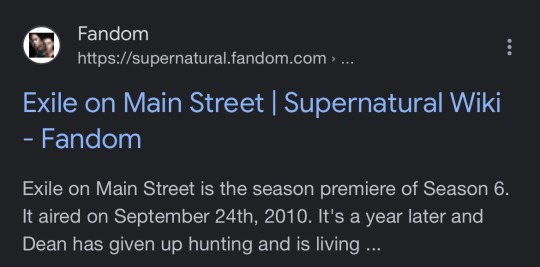
Update: soooo, um… at least we’re next to the subliminal gay sex kittens, what a treat

Straying further from gods light, yay!
#supernatural#spn#dean winchester#jensen ackles#bi dean#dean is bi#gay#bobby singer#spn 6x01#6x01#exile on main street
2K notes
·
View notes
Text




Main St, Bridgeport, CA, 2017
Photography by Xuebing Du
Instagram: xuebing.du
#photographers on tumblr#original photographers#califronia#bridgeport#landscape#main street#American impression
184 notes
·
View notes
Text

Rolling Stones Guitarist Keith Richards Backstage with his Fender Sunburst Stratrocaster during the US 1972 STP Tour. Promoting "Exile on the Main Street"
#keith richards#rolling stones#rhythm and blues#rock and roll#charlie watts#mick jagger#bill wyman#mick taylor#exile on main street#bobby keys#ian stewart#nicky hopkins#jimprice
196 notes
·
View notes
Text
Both Ways at Once Part 5
WC: 1766, Masterpost CW: discussions of death, vague mentions of child trafficking and rape
Danny leaned back in his chair and closed his eyes. He breathed in slowly through his nose, counting. He couldn’t let loose. They didn’t know. John said they didn’t know and Danny trusted John. Not with everything, he knew too much to trust John with everything, but he trusted John with this. The other wouldn’t have done this if he had known.
The gloved hand on his shoulder shifted, sliding to wrap around the back of Danny’s neck and give a little squeeze. It should have felt suffocating. It was grounding. Danny could already feel himself settling and responding to resonate back with Red Hood.
That was dangerous to have that resonance.
“Pomp,” John said. His shoes squeaked as he leaned forward. “Talk to me, Pomp, what did I miss?”
That right there was one of the reasons Danny trusted John, he would step up when he fucked up.
Danny sighed and opened his eyes. “He’s— he was a halfa, John.”
John paled. The color drained out of his face and left him a splotchy grey. His voice was strangled as he insisted, “Halfas are just a myth.”
“Rare, very rare, but not a myth. Think about it John. You said that the Red Hood from before was alive, but you know I’m right, the one here is a protector spirit. He died, John.”
“Red Hood is still alive, he has a heart beat,” Superman insisted.
“I’m still not talking to you,” Danny hissed, not taking his eyes off John. “Constantine. He was a halfa. I don’t know what they are anymore. This one is more ghost than human. I assume that the other one is more human than ghost. But put them back together and they would be perfectly balanced and you’ve been keeping them apart.”
John slumped back, rubbing at his face. “Bloody fucking hell…”
“The other half has been unwell, hasn’t he? Maybe just fatigued, but I bet he’s in pain too. His focus keeps wandering maybe. He’s listless.” Danny finally glanced away from John and over to the trio. Batman was, as always, almost impossible to read, but Danny felt sure Batman was tense. He might even be worried.
He wasn’t even looking at Danny but instead at Red Hood, who Danny was sure was avoiding Batman’s gaze. Even still, Red Hood’s fingers were trembling against the back Danny’s neck.
Danny reached up and took the gloved hand, hooking their fingers together.
“Constantine,” Batman growled, but the word sounded broken, under the bite.
John glanced from Batman to Danny and back again. “If Nightingale says that Red Hood is, was, a halfa, then he was. Nightingale’s the psychopomp, the dead is his realm more than any living I’ve ever met and, hell, more than most people who are dead.”
“And what is a halfa?” Wonder Woman asked, still the calm voice of reason.
“Rare,” Danny bit back, showing his teeth. He made himself take a breath and regulate his tone. “Someone who is half living, half ghost. They are a balance between life and death. If no one knew that Red Hood was part ghost, there’s a chance he wasn’t fully formed before, but I can assure you he’s a protector spirit now, no matter if he’s still alive. It’s also likely why the spell did this. There were already two halves to split. The human who was the living and the ghost who was the death.”
Wonder leaned forward in her seat. “You seem certain that the other half is sick.”
“They have to be— it’s a part of themselves that was ripped out and that leaves a wound. I suspect that because the other one must have more of the human side, he’s suffering more of the human affects of the separation while Red Hood is suffering more of the ghostly affects.”
“And your recommendation?” Wonder Woman asked.
“They need to be together. They need to be together and the place where they’re together needs to be Red Hood’s haunt.”
“His haunt?”
“Likely where he resided before. Or it would be where he patrolled if those are different areas. It would be somewhere emotionally important to him no mater what. As I’ve said, he’s a protector spirit so it should be obvious where his haunt is considering his role as a vigilante.”
“Crime Alley,” Red Hood rasped from behind Danny. his fingers squeezed tighter around Danny’s for a moment.
Danny’s arm was getting sore holding itself up like that, but he wasn��t going to take the comfort away from Red Hood or even deprive himself of that grounding point. It would be too easy for him to lose his temper here and really give the Justice League something to be afraid of.
“Crime Alley then,” he said. He had no reason to doubt what Red Hood was said. A ghost knew their own haunt. “We have to get him back to Crime Alley and they need to be together. I assume you have a place there?”
“No,” Batman said, though he didn’t shift. Wonder Woman placed her hand on his arm again.
“We’re concerned about there being a reaction of some sort should they meet,” she explained. “Constantine said that it might be possible.”
Constantine grumbled under his breath and ducked his head with a little shrug.
“If we didn’t know what was going on, sure, that’s a fair enough worry, but we do and I’m telling you that they need to be together until either they’re back together as one or until they fully settle into two separate people.”
“No.” It was Superman who protested this time.
“You don’t have a choice if you don’t want to torture and kill one or both of them,” Danny said, resisting the urge to bare his fangs at the boy scout again. “They need to go to Crime Alley.”
“He’s dangerous. If he is just the Red Hood half of the personality, which you’ve basically confirmed—“
“I have not. I’ve explained how they were physically split. It has affected how their split in motivation only because motivation is what a ghost is, but I would have to speak with both of them to learn how they are mentally and emotionally split.”
Superman just frowned in a disappointed uncle sort of way, as Danny talked and then continued on like Danny hadn’t even said anything. “Then he’s even more dangerous. We cannot simply let someone like Red Hood go. We have to think about everyone’s safety in this matter, especially civilians.”
“I thought you weren’t killers?” Danny threw back at them, saccharine sweet in his delivery.
It made Superman’s frown deepen, though Wonder Woman actually looked a bit amused.
“We aren’t,” the Big Blue said.
“If you try and keep him here you are. I’m telling you right here and right now that if you do not let him go back to Crime Alley then you are signing his death warrant. You might try to claim that he died in jail, but you’ll still be the cause of it. But that’s how you kill, isn’t it?”
“Nightingale,” John warned under his breath, twitching like he wanted to reach out and touch Danny, maybe to hold him back.
“No, really, it is, isn’t it? You want to to pretend that you don’t kill, that you’re better than whatever Red Hood has done, but are you really? At least he’s Honest about it. Red,” Danny said, tugging at the other’s hand so that he had to move up to stand more beside him. Danny looked up at the mask, looked through it. “You’ve killed.”
“Yes.”
“Why?”
“Because they wouldn’t stop. They never stopped. Now that they’re dead, they’ve stopped.”
“Who?”
“Poisoning drug dealers. Rapists. Abusers. Child traffickers. People who threatened my….” Red Hood reared back slightly as if surprised by what his cut off words were going to be.
“Your haunt. Your people. Those under your watch and protection,” Danny said. “See, he’s honest about it. Were all of those deaths in the right? I don’t know. But I’m not sad a rapist is dead. I’m not sad children didn’t get trafficked. Those are the sort of people we’re supposed to be against, isn’t it? Well, us small heroes. You fight bigger names these days, don’t you, Superman?”
“Alright then,” John said, standing suddenly. Red Hood twisted to put himself further between the occult detective and Danny.
Danny patted Red Hood’s arm gently. “It’s okay, John’s trying to protect me. He thinks I’m putting my foot in my mouth and making enemies. And maybe I am. But I’m not going to sit by and watch this hypocrisy. You don’t kill. That’s a damn lie.”
“We don’t.”
“You’ve checked up on ever criminal then?”
“What?” Superman asked, thrown by the sudden question.
“Every criminal you’ve fought, every mugger and back robber and goon, you’ve followed up to see how they’re doing the next day, month, year?”
Superman had that lemon sucking twist to his face again. “No?”
“So you don’t really know, do you, how many criminals walked away from you only to die of brain hemorrhaging later because you punched them into a wall. Or how many died from a complication to their lungs or spine or heart because Black Canary ruptured something with her wail or Flash fucked from contact with the Speedforce. It’s not that you haven’t killed, it’s just that you don’t know how many you’ve killed. It’s impossible to act on the scale that you do and not have killed,” Danny said with certainty.
“Nightingale, I believe you’ve made your point,” Wonder Woman said, still calm, still patient. She was different from the others. She has killed, Danny knew that; she was an Amazon. He remembered his stories from Pandora.
“Have I?” Danny asked. He let go of Red Hood as he stood to lean over onto the table. Danny could feel that snarl building up in his throat again now. The other reached out to touch him again right away. The snarl calmed a little, only a little. “Because what about when Superman has used a building as a barrier to smack an enemy into? No one was ever hurt there? No grannie ever slipped and fell as the building shook and never got up again? At least that would be an accident then, unlike punching someone to death, but don’t pretend your hands aren’t red. Don’t pretend—”
The hiss of the door opening cut Danny off.
The room feel silent.
Danny could see all the heroes tense.
From behind him a voice spoke up, “Well, aren’t you all dramatic.”
--- AN: The mysterious stranger is right! They are all dramatic. Danny was about ready to go for Superman's throat-- literally and just not figuratively. Hope you enjoyed how this all played out! I know people were waiting for Danny to let loose some. Fatigue is hitting me hard right now, so glad to have gotten this out!
Stay delightful, darlings!
I no longer tag, you can instead subscribe to the masterpost!
1K notes
·
View notes
Text

"Main Street Electrical Parade" Vacationland, Summer 1976
#main street electrical parade#vacationland#vintage#disney#vintage disney#1976#1970s#disneyland#vintage disneyland
256 notes
·
View notes
Text

#aesthetic#art#fashion#photography#coquette#grunge#pale#vintage#dollette#angelcore#nature#street style#y2k#2000s#90s#soft grunge#grungecore#nostalgia#tumblr girl#gaslight gatekeep girlboss#girl blogger#main character#female manipulator#alternative#indie sleaze#outfit#style#dark core#dark#ethereal
202 notes
·
View notes
Note
hi please I need this in my life rev robins tim adopting Jason is amazing I need whatever deets you got skskskisk
Here have some more bullet points! ✨
Instead of tires Jason happens upon a fancy drone Tim had stashed somewhere. He takes advantage of the situation (this kind of fancy tech sells for a thousand bucks at LEAST!), hot wires the thing, and takes off with it. Sadly, Jason misses the tracker so Tim sniffs him out within the hour, thinking Batman’s onto him (who else could have the knowledge to wire HIS advanced tech but Bruce?)
Tim kind of blue screens when he sneaks into Jay’s hideout and finds a malnourished kid nibbling on a piece of stale bread and the drone clutched in one hand
Jason thinks he’s done for when the new crime lord shows up. Like- that guy cut the heads off several people only a few days ago and- oh, oh god, he just stole from a crime lord. Oh no, oh shit-
Tim is still blue screening and thus totally misses that the kid went into fight or flight mode until the drone comes sailing at him and hits him clean in the face.
Jason, in his panic, jumps right out the window (death via fall is better than having his head cut off, or whatever else perverted thing the new crime lord is into)
Tim barely manages to react in time to keep Jason from plummeting several stories, having even more trouble dragging the kid back onto solid ground because the little shit actually tries biting him! (Tim is lowkey impressed)
Jason never stops fighting, managing some solid kicks and punches that Tim’s gonna feel for several days, and keeps spitting at Tim even after he’s finally got him pinned
Tim, after inspecting Jason’s handiwork on the drone and considering the kid’s fighting spirit (not to mention the ill seated realization that Jason might not make it much longer on the streets with how thin he is), knows that the kid is either gonna die or be picked up by Batman (or god forbid, Damian) if he finds out about the kid’s skills. So really, it’s a no brainer what Tim has to do now
Bruce and Damian think they’ll have to do another tally mark in the list of crimes Hood committed, now thinking not even street kids are safe from him
Jason’s not sure he likes this weird arrangement, but Hood turns out to be surprisingly young and doesn’t want him to do any weird crime stuff and actually teaches him things about tech, so… he thinks he’ll stay. For now.
(Tim spends exactly one week around the spitfire that is Jason and decides that, yes, he would kill everyone in Gotham and then himself if anything happened to him. Not that he’s gonna let anybody know that.)
#oh and Joker is dead#because Tim is pragmatic and it’s the first thing he did upon coming back to Gotham#not that the ‘sudden death’ can be traced back to him#Tim hates Bruce and Damian in equal measure#Jason likes Batman and Damian (vigilante name pending)#Tim hates that Jason likes Batman and Damian#but he doesn’t try to alienate them#Tim just wants a family ok#not that he views it as such#he’s just doing the good deed of the century giving the street kid a home nothing more#Tim is doing Jason a FAVOR keeping him away from the bats#Tim’s main hideout is in Drake Manor to spite the bats#they’d never look there#jason todd#Tim drake#reverse robins#reverse robins au#batfamily#batfam#red hood#Damian wayne#Damian al ghul#Bruce Wayne
198 notes
·
View notes
Text

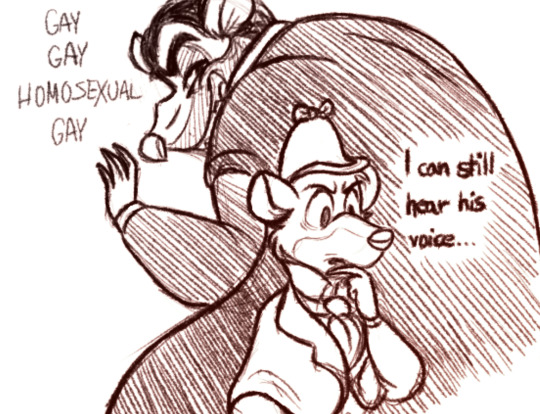
So true anon!!!
#fanart#sketch#meme#tgmd#the great mouse detective#disney#disney fanart#basil of baker street#basil#ratigan#professor ratigan#padraic ratigan#basigan#i wanted to make this meme with this for so long thank you anon#though tbh i got this ask on my main blog#but since i replied with art stuff i thought of replying here-#basil x ratigan#gay gay homosexual gay
546 notes
·
View notes
Photo
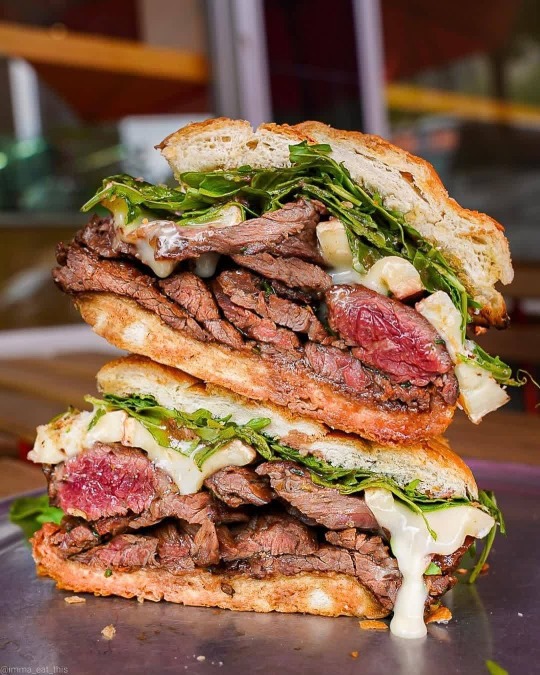
(@montagusgusto_) S3. Corona steak sandwich : skirt steak, brie cheese, arugula and fig tahini on a home made softy roll
#steak#sandwich#beef#cheese#food#restaurant#cafe#street food#steak sandwich#tahini#red meat#lunch#main course#tasty#foodporn#delicious#food photography#foodgasm#foodstagram#instafood
2K notes
·
View notes
Text
Cinderella Castle Anniversary (1st Oct) 🕛🏰🌠

#Walt Disney World#Cinderella Castle#Main Street#Magic Kingdom#Fantasyland#Cloudy Sky#Castle#Disney#Theme Park#Disney Parks#Street Scene#Walt Disney World Resort#Orlando#Florida
131 notes
·
View notes
Text

Drawing Elena until she's playable in SF6 #15
203 notes
·
View notes